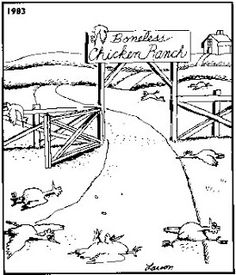Municipalities and counties got a big boost today with the unveiling of a searchable database with more than 100 newly adopted innovative, local government food system policies that can be shared and adapted across the country. The Growing Food Connections Policy Database, hosted by the School of Architecture and Planning at the University at Buffalo, will assist local governments as they work to broaden access to healthy food and help sustain local farms and food producers.
Growing Food Connections, a federally-funded research initiative to strengthen community food systems nationwide, has compiled over 100 policies governing issues as diverse as public investment in food systems, farmland protection, local food procurement and food policy council resolutions. The database is a comprehensive catalog of enacted food policy. By drawing upon partner resources and networks, the database provides a vast resource of policies that have been implemented and are currently being used by communities. Furthermore, it provides inspiration for communities looking to start building their own food policy. Read more…
Guelph Mercury, October 21, 2014
Earlier this month, the Guelph Wellington Food Round Table — in collaboration with Sustain Ontario — asked all of the candidates for trustee, councillor and mayor to participate in the Vote on Food and Farming survey. Because food and farming touch so many important areas of our lives, and shape our regional character, economy, culture, and communities, the survey has six broad questions related to the economy, health, the environment, access, education and collaboration — along with key actions that will shape the future of food and farming in this region.
A week after sending out the survey, we have had responses from 26 of the 44 “active” races (not acclaimed) from all eight municipalities in Wellington; from every ward in Guelph; and from 10 mayoral candidates (including four in Guelph). This is the most active and engaged regional response in the province. Read more…
Stroud Life, October 20, 2014
ONE of Stroudco’s largest suppliers is Stroud Community Agriculture (SCA) which farms 23 acres of land around Hawkwood College overlooking Stroud. SCA was established 14 years ago by a group of volunteers who wanted to provide an alternative to the supermarket system by building a direct connection between the people growing the food and the people eating it. They started off by growing vegetables on less than one acre and sharing produce amongst the small group of supporters who set up the farm community. SCA is now a thriving, community-run social enterprise with over 230 household members around Stroud who collectively pay all the costs of the farm including the wages of three full time farmers. In return the SCA members receive a weekly share of the produce harvested from the farm. Read more…
Local food hub to offer food to other parts of northeastern Ontario
CBC October 14, 2014
Eat Local Sudbury is in the process of developing a business plan to expand its local food hub to other areas in northeastern Ontario. The new areas to have service include LaCloche-Manitoulin, North Bay, Temiskaming, Muskoka and parts of Algoma. According to Eat Local, a local food hub helps with the collection, storage, processing and distribution of local food.
The plan, called the Eat Local Sudbury Food Hub Business Plan project, is moving forward after the co-op received $17,200 from the province’s Greenbelt Fund. The Managing Director of Eat Local Sudbury, Peggy Baillie said demand for local food continues to grow. “More and more people are gaining interest in terms of local food and wanting access to it, including institutions, schools and public health facilities. This plan is trying to address those needs.”
Read more…
Thunder Bay’s Regional Food Distribution Association is part of a pilot project to send fresh food north
CBC October 21, 2014
A group of First Nations in northwestern Ontario is getting fresh fruits and vegetable this month, thanks to a pilot project between Food Banks Canada and the Regional Food Distribution Association. Volker Kromm is the association’s executive director. He said statistics show one in five Aboriginal people, living on reserve don’t get enough to eat, and nearly half of those people are children. Kromm said, through the partnership with Food Banks Canada, he was able to purchase $20,000 worth of fresh groceries to take to some First Nations communities that are accessible by road. He said he was transporting everything from potatoes to granola bars to cantaloupe. Read more…
WEBINAR
WEDNESDAY, OCTOBER 22, 3:00 – 4:30 p.m. EDT
In Ontario, several institutions are already producing food on their properties as a way to generate revenue; supply nutritious fresh food for consumption (by staff, patients, students, etc.); provide skills training and therapeutic benefits; and build social enterprises. This webinar will share how project partners at health care, social service and educational institutions went about getting gardens off the ground at their institutions, as well as some of the lessons we learned in the first year of working with pilot projects across the province. Read more…


